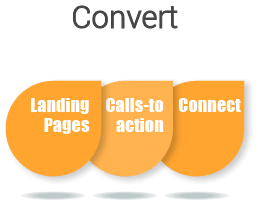Introduction
In the ever-evolving landscape of digital marketing, search engine optimization (SEO) remains a cornerstone strategy for businesses aiming to enhance their online visibility. With search engines continuously refining their algorithms, marketers and website owners must stay ahead of trends and best practices. This comprehensive guide aims to unravel the complexities of SEO, offering insights and strategies that will help you navigate the intricacies of optimizing your website in 2023.
Understanding Search Engine Optimization
What is Search Engine Optimization?
Search engine optimization refers to the process of enhancing a website's visibility on search engine results pages (SERPs). By Local SEO consultant Nashville optimizing various elements—such as content, keywords, and technical aspects—businesses can improve their chances of ranking higher in organic search results.
Why is SEO Important?
SEO is crucial for several reasons:
Increased Visibility: Higher rankings lead to increased visibility. Traffic Generation: Improved rankings drive more organic traffic. Credibility and Trust: Users trust search engines; high-ranking sites are often perceived as credible. Cost-Effectiveness: Compared to paid advertising, SEO provides long-term value.The Ultimate Guide to Search Engine Optimization in 2023
Key Trends Influencing SEO in 2023
As we delve into this ultimate guide, let's highlight some key trends shaping the future of SEO:
Voice Search Optimization- More users are utilizing voice-activated devices like smartphones and smart speakers.
- Google prioritizes mobile-friendly websites in its rankings.
- AI tools are becoming essential for data analysis and content personalization.
- Factors like site speed, mobile usability, and engagement are increasingly important.
Essential Components of Effective SEO
Keyword Research: The Foundation of SEO
Keyword research is fundamental when crafting an effective SEO strategy. It involves identifying the phrases potential customers use when searching for products or services similar to yours.
Tools for Keyword Research
- Google Keyword Planner SEMrush Ahrefs Moz
On-Page SEO: Optimizing Content
On-page SEO encompasses all measures that can be taken directly within your website:
Title Tags
The title tag tells search engines what your page is about. Make sure it includes your primary keyword.
Meta Descriptions
A compelling meta description encourages users to click through from SERPs.
Headers and Subheaders
Use headers (H1, H2, H3) effectively to structure content while including relevant keywords.
Content Quality
Create valuable content that addresses user queries and incorporates keywords naturally.
Technical SEO: Ensuring Site Integrity
Importance of Technical SEO
Technical SEO refers to optimizing your website's infrastructure so search engines can crawl and index it effectively.
Key Aspects of Technical SEO
Site Speed- A slow-loading site can negatively impact user experience.
- Ensure your site is responsive across devices.
- Provide a clear roadmap for search engines to find all pages on your site.
- Control which pages should be crawled by search engine bots.
Link Building: Cultivating Authority
What is Link Building?
Link building is acquiring hyperlinks from other websites back to your own. It’s a critical aspect of off-page SEO that enhances authority and credibility.
Strategies for Effective Link Building
Guest Blogging Broken Link Building Skyscraper Technique Social Media EngagementContent Strategy: Creating Value
Developing a Robust Content Strategy
Creating high-quality content should be at the heart of your SEO efforts:
Types of Content You Can Create
- Blog Posts Infographics Videos E-books
Local SEO: Targeting Your Community
Why Local SEO Matters
For businesses with a physical presence, local SEO helps attract customers in specific geographical areas.
Techniques for Enhancing Local Visibility
Optimize Google My Business Listing Use Local Keywords Encourage Customer ReviewsFAQ Section
1. What are the key factors for successful SEO?
Successful SEO relies on keyword research, on-page optimization, technical integrity, quality content creation, link building, and an understanding of local dynamics.
2. How long does it take for changes in my SEO strategy to reflect?
Typically, noticeable changes can take anywhere from three to six months depending on competition levels and current rankings.
3. Is social media important for SEO?
While social media does not directly influence rankings, it enhances visibility which can lead to more backlinks and traffic—factors valuable for improving rankings indirectly.
4. Do I need an SSL certificate for my website?
Yes! An SSL certificate enhances security which is now a ranking factor according to Google's algorithm updates.
5. How often should I update my content?
Regularly updating content based on changing trends or new information keeps it relevant; aim for at least once every few months.
6. Should I focus on short-tail or long-tail keywords?
Long-tail keywords generally have lower competition but higher conversion rates since they target specific queries!
Conclusion
Navigating the world of search engine optimization can initially feel overwhelming due to its vastness and complexity; however, anyone can master these concepts with patience and persistence! By following this ultimate guide to search engine optimization in 2023—covering everything from keyword research and link-building strategies to mastering technical aspects—you’ll set yourself up for success in enhancing online visibility and driving targeted traffic effectively!

Remember that Nashville SEO consistency is key; keep learning about new trends while adapting your strategies accordingly! Happy optimizing!